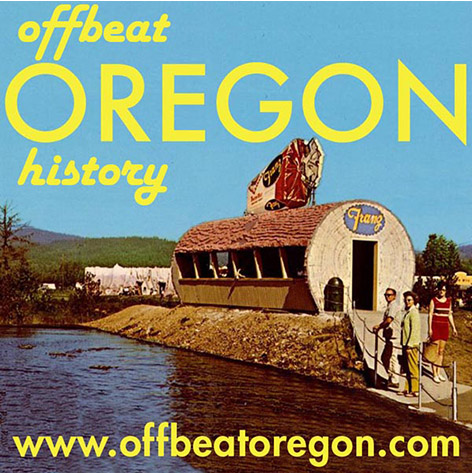PRINEVILLE, CROOK COUNTY; 1910s:
Wall Street wizard turned tables on baseball hustlers
No audio (podcast) version is available at this time. By Finn J.D. John
|

This probably would have worked out great for everyone involved, but as shares in Amalgamated Copper rocketed north of $175 a share, someone — probably Rogers or Rockefeller — realized that the stage was now perfectly set for a pump-and-dump operation of historic proportions. So before the deal was complete, when Amalgamated was still just a shell with no assets beyond that one purchase option, they leaked the word out that Amalgamated didn’t really own Anaconda yet, and that there was no reason why it might not just close down and keep all the money it had raised rather than exercising its option to buy it. The result was catastrophe for all the smaller investors who had poured their money into Amalgamated. Shares plunged to below $30. Investors who were able to hang on and ride the storm out were OK, but many investors weren’t in a position to do that, because they’d borrowed money to increase their position. And many of them had done that because Lawson had been promoting it as a fabulous opportunity. He’d been telling everyone he knew, for weeks, that Amalgamated was the best, most sure-thing investment opportunity he’d ever seen. “Go your limit!” he’d urged, flat-out. And boy, they did. Thus, Lawson had been in charge of the “pump” part. Did he know about the plans for the “dump?” He claimed not to, and those claims do ring true. His reputation was thoroughly burned in the fiasco; nobody in the investment community would ever trust him again. The considerable wad he earned by following his own advice and “going his limit” buying on the “dump” dip would be the last money he’d make on Wall Street, or close to it. It was quite a swan song, though; it pushed his net worth over the $50 million mark (worth about $1.9 billion in 2024 dollars). 
A 1905 edition of Lawson's confessional book, Frenzied Finance. The full text of this book can be read online at Project Gutenberg, https://www.gutenberg.org/ebooks/26330 .Lawson clearly felt the pump-and-dump leak as a betrayal, especially as numerous small investors who he knew personally and had thought of him as a friend were ruined after borrowing heavily to buy shares. Several investors were reported to have killed themselves over it. Haunted by feelings of guilt over his part in this big deed of villainy, Lawson withdrew from Wall Street and, essentially, retired. He was in his early 40s at the time. A few years later, in 1904, he tried to redeem himself by writing a confession of sorts — a tell-all titled Frenzied Finance, which ran as a serial for two solid years in Everybody’s Magazine. It sold magazines like you wouldn’t believe, and had a noticeable impact on public pressure to crack down on trusts. This pressure made Henry Rogers and William Rockefeller hate Lawson as much as he already hated them. But that suited him just fine. He’d made enough money to never have to work with them, or crooks like them, ever again. He settled into life as a 45-year-old retiree, on the thousand-acre grounds of his magnificent mansion next door to the Kennedy estate.
What was a guy like Lawson doing in Prineville, anyway? Actually, he was there to buy a nice country estate to give his daughter, Dorothy, and son-in-law, Hal, as a wedding present. He had just happened to be in town with Dorothy and Hal the day of the game, and they had just closed a deal on a gorgeous 640-acre spread on the Crooked River; and no doubt he thought putting a little money on the home team would help warm up the welcome the newlyweds would get in their new home town. (Hal, by the way, was himself a pro-level baseball player. He pretty much won Dorothy’s heart on the baseball diamond at Harvard. It was a pretty good bet that he would be trying out for the team himself after they got settled in.) Certainly Lawson could walk away from the thousand bucks. It was, after all, less than three hundredths of one percent of his fortune. But he’d be damned if he’d let Dorothy and Hal get off to such a lousy start in their new home town. Not if he could help it. Could he help it? As it happened, yes, he could. It was time to go on down to the field and do in the Visitors’ bullpen what he’d done so often, in his younger years, on the trading floor. This jovial and charismatic stock promoter, the chief salesman of the biggest bamboozle of the Gilded Age, knew just how to proceed. Smiling broadly, he made his way down to where the Silver Lake players were resting and catching their breath, waiting for the game to resume. No doubt he was at his boisterous and hearty best as he stepped up to the members of the visiting ball club, although the records don’t mention that part. What they do mention are his words: “The drinks are on me!” he roared.
Which was good — not just for the newlyweds, but for the entire state of Oregon. And that’s because of the other reason I mentioned why the name “Thomas Lawson” might have rung a bell in your memory. It’s because of Lawson’s grandson — Dorothy and Hal’s second child, who was named after his illustrious grandfather. His name was Thomas Lawson McCall, and he grew up to be probably the best and most effective Oregon governor in the state’s history — who, of course, you likely know as Tom McCall.
|




